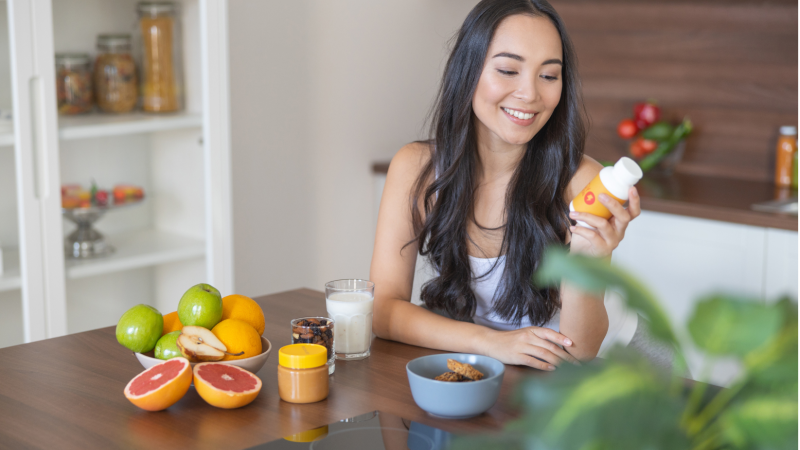
3 Foods for Curing Pain and Inflammation
Pain and inflammation act as our bodies’ dynamic duo, stepping in for defense and repair. In the immediate aftermath of an injury or infection, pain signals serve as red flags, directing our attention to the site of trouble and urging caution. At the same time, inflammation mobilizes the immune system, dispatching cells and biochemical warriors to neutralize threats and initiate the healing process.
But in the long-term, persistent inflammation can become a double-edged sword, damaging healthy tissues and contributing to the development of chronic conditions. The very mechanisms designed to protect us in the short run can, if left unchecked, turn into saboteurs, wreaking havoc on the body’s delicate balance, creating chronic illness and debilitating physical symptoms.
In this blog, I’ll be covering the three foods that create pain and inflammation, three foods you can eat to rapidly decrease (and potentially eliminate it), and several bonus tools to integrate into your life that will help you heal from it and prevent it from occurring in the future.
Let’s go.
Three Foods That Decrease Inflammation
Fish Oils
Fish oils, renowned for their health benefits, are particularly esteemed for their remarkable ability to reduce inflammation in the body. Packed with omega-3 fatty acids (specifically EPA and DHA), fish oils exert potent anti-inflammatory effects at the cellular level. These fatty acids serve as precursors to specialized molecules called resolvins and proteins, which actively work to resolve inflammation and promote tissue repair. Additionally, they inhibit the production of pro-inflammatory cytokines.
Turmeric
Turmeric, renowned for its vibrant hue and distinctive flavor, packs a powerful punch when it comes to addressing inflammation. The secret weapon within turmeric is curcumin, a bioactive compound with potent anti-inflammatory properties. Curcumin works by targeting multiple pathways at the molecular level, inhibiting the activity of inflammatory enzymes and reducing the production of pro-inflammatory cytokines. Its effectiveness is akin to a skilled conductor orchestrating a symphony of anti-inflammatory responses within the body.
Studies have shown that curcumin’s impact rivals that of some anti-inflammatory drugs, sans the potential side effects. Incorporating turmeric into one’s diet or opting for curcumin supplements can be a flavorful and natural strategy to help quell inflammation, providing a holistic approach to promoting overall health and well-being.
NAD
NAD—the coenzyme we speak about so much—is a pivotal player in cellular energy production and wields a multifaceted influence on inflammatory processes. NAD’s role in supporting sirtuins is particularly noteworthy. NAD acts as a molecular maestro in over 500 cellular processes in the human body, healing run down metabolic systems and orchestrating an intricate dance that suppresses pro-inflammatory signals. NAD’s effect also extends to immune modulation, ensuring a balanced and controlled response to external threats and reducing your chances of chronic illness.
Three Foods That Create Inflammation
Alcohol
Alcohol, a favorite social elixir, unfortunately wreaks havoc on various physiological systems, triggering an inflammatory response as the body attempts to cope with the assault. The liver, in particular, bears the brunt of alcohol metabolism, leading to the release of inflammatory chemicals and the formation of oxidative stress. This inflammatory cascade can extend beyond the liber, affecting other organs and tissues throughout the body. Alcohol also disrupts the balance of gut bacteria, contributing to intestinal inflammation that may exacerbate overall systemic inflammation.
While an occasional toast might not be cause for concern, chronic and excessive alcohol consumption can turn the celebration into a symphony of inflammation, potentially leading to long-term health consequences.
Sugar
Sugar, particularly in the form of refined carbohydrates, can set off a cascade of events that fuel inflammation in the human body. High sugar intake releases pro-inflammatory cytokines and activates inflamed pathways, contributing to a state of chronic inflammation. This inflammatory response permeates many physiological systems such as joints, organs and even the nervous system.
Sugar consumption is also linked to insulin resistance, a condition that not only disrupts glucose metabolism, but also additionally exacerbates inflammation.
Pasteurized Dairy
The dairy pasteurization process involves heating milk to kill harmful bacteria but unfortunately also alters the structure of proteins and enzymes in the milk. For some people, especially those with lactose intolerance or dairy protein sensitivity, these changes trigger an inflammatory response.
Additionally, pasteurized dairy lacks the beneficial enzymes and probiotics presented in raw varieties, which play a role in aiding digestion and maintaining gut health.
The inflammatory potential of dairy varies from person to person, and while many individuals tolerate it well, some find relief from inflammation by exploring alternative sources of dairy or opting for fermented dairy products that may be less inflammatory and more digestible.
Three Tools to Reduce Inflammation:
- Infrared sauna
- Cryotherapy
- Cold plunges
- Egoscue1 (to reduce pain and help balance)— popularized by Tim Farris and also used by Tony Robbins
For extra resources, see Josh Axe’s blog for anti-inflammation supplements.
Lastly, if you’re interested in going deeper on health-related content, here are a few of our recent posts that you may want to read:
- What Does Peak Performance Look Like?
- Andrew Huberman is Wrong About NAD, NAD+ precursor & Longevity
- Why Optimized, Precision Medicine is the Future
- 9 Powerful Benefits of Optimizing Your NAD
Referenced Sources:
Read More














